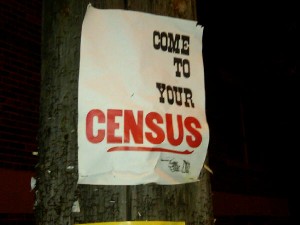Please vote – Open Access to Canada’s Public Sector Information and Data. This is part of the Industry Canada Digital Economy Consultation.
Please take some time to vote and distribute within your networks and institutions! It just takes a few seconds.
We are at a tipping point on this issue in Canada and your few seconds of your time could open up our data resources. You will also see a complimentary Research Data and improved access to publicly-funded data submissions that could also use some votes while you are at it!
Below is the text. If you have ideas that can be added for a formal submission, I would be really glad to hear from you!
Create a data.gc.ca for Canada’s public sector information (PSI) and data in parallel with the excellent NRCan GeoConnections model (e.g. GeoGratis, GeoBase, Discovery Portal).
These PSI & data should be shared at no cost with citizens, be in accessible and open formats, searchable with standard metadata, wrapped in public domain or unrestricted user licenses, delivered within an an open architecture infrastructure based on open standards, specifications and be interoperable. It should be governed with open government principles whereby data & PSI are shared first and arguments to restrict are made only for legitimate privacy and security reasons which should also be disclosed. It should have a permanent home and include both the right combination of multi-departmental (e.g. CIC, INAC, HRSDC, NRC, NRCan, etc.) inputs, trans-disciplinary human resources (e.g. Librarians, archivists, scientists) along with IT specialists & engineers. It should be built in consultation with Canadians to ensure it is designed with user needs and useability in mind. (This is how the GeoConnections program built the Canadian Geospatial Data Infrastructure).
The Government of Canada produces administrative data for the purpose of program delivery (e.g. Canada Student Loan, location where new Canadians land, the number and location of homeless shelters, etc.), and it produces data for the purpose of governing for example: the data collected by Statistics Canada (e.g. Census & Surveys, National Accounts); Environment Canada (e.g. air & water quality, location of brown sites); Canada Centre for Remote Sensing (e.g. satellite and radar imagery); Industry Canada (e.g. corporate registry); Canada Revenue Agency (e.g. Charities dbase); National Research Council (e.g. Scientific data); SSHRC (e.g., social science research data) and more. These data have already been paid for by Canadians via taxation, and the cost of selling these data back to citizens on a cost recovery basis is marginal or more expensive (e.g. Cost of government to government procurement, management of licences, royalties, government accounting and etc.) relative to the benefits & reduced overhead of delivering these data at no cost. Furthermore, Canadians often pay multiple times for the same data, since each level of government also purchases the same data, federal departments purchase these data from each other and there are examples where municipalities purchase the same data multiple times from Statistics Canada. This is not only a waste of taxpayer money it goes against the principle of create once and use many times and of avoiding the duplication of effort.
Data & PSI are non rivalrous goods where sharing and open access to these does not impede other from doing so. Open access stimulates research and IT sectors who will have the resources they need for the creation of new data R&D products (e.g. Applications) and services (e.g., web mapping), evidence based decision making (e.g. Population health), and informing public policy on a number of key Canadian issues (e.g. Homelessness, housing, education). In addition, evidence from Canadian City Open Data Initiatives (e.g., Vancouver, Edmonton, Toronto, and Ottawa) have demonstrated that the cost and time to find and access data & PSI within government have been greatly reduced since finding these are easier and negotiating access becomes a non issue, which in turn brings savings to citizens and greater efficiencies within these institutions. Finally, participatory and deliberative democracies include the active engagement and inputs from citizens, civil society organizations, the private sector, and NGOs along with their government. Making these data available increases the collective knowledge base of Canadians and stimulates public engagement, improves efficiencies, and fuels innovation.
These are already our (citizen’s) data & PSI, why not share share them with us and enable citizens and the government to work together to stimulate Canada’s economy, create innovative industries and formulate evidence based public policy.


Comments on Posts